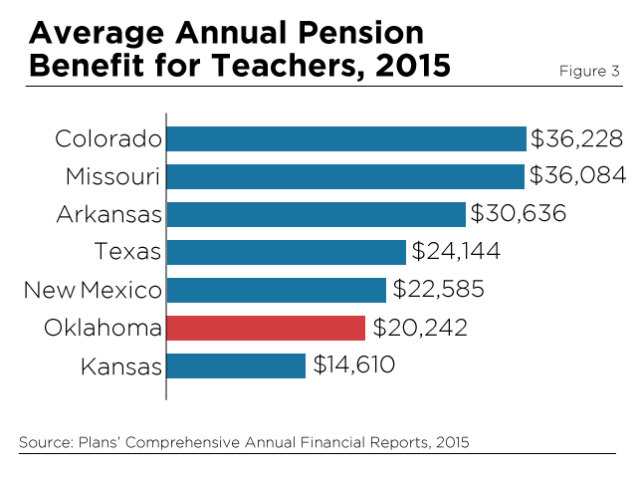The National Public Pension Coalition has released a report addressing the Oklahoma teacher shortage and how the state’s attacks on teacher-retirement security are severely hurting our students’ K-12 education.
The report further highlights the security of a defined benefit pension as a key element in retaining quality teachers.
The report comes as the Oklahoma Legislature considers SB 1187, a bill that would further harm the state’s ability to educate students, driving more teachers out of state and increasing the number of non-accredited teachers within Oklahoma public schools. In addition, it comes just days after the Oklahoma City Public Schools District announced it will terminate an additional 208 teaching positions.
“My commitment is 100 percent with my students, but it has been difficult to get by on my current wages and benefits,”said Torie Shoecraft from Nichols Hills Elementary School, Oklahoma City Public Schools. “New teachers in Oklahoma have a minimum starting salary of only $31,600. The continual budget cuts are just making things worse, with my colleagues and I trying give individual attention to more than 30 students at a time.”
Budget cuts to the Oklahoma education system are not new to the state. Since 2008, total state funding per student has been cut by more than 15 percent. As of March 2016, state leaders have ordered an additional 10 percent cut from the Oklahoma Department of Education. The current average teacher salary in Oklahoma is 21 percent less than the national average. Additionally, 17 percent of new teachers from Oklahoma public schools leave every year, compared to Texas, which has an 11 percent first-year exit rate.
Studies have shown that a longstanding tool of teacher recruitment and retention is offering a comprehensive benefits package, including a secure and stable defined-benefit pension. In addition to helping schools retain high-quality employees, a pension reduces teacher turnover rates, which in turn can help school districts use the money they save toward their students. Now, at a time when the state is in desperate need of qualified teachers, elected officials are considering legislation that would further cut teacher compensation and lessen the quality of Oklahoma schools.
SB 1187, which recently passed out of the full Senate, would essentially turn public schools into charter schools — causing great damage to an already fragile education system. The passage of this bill would eliminate:
- health insurance for teachers;
- criminal background checks;
- teacher evaluation and due process protection;
- payroll deduction;
- all certification requirements for all school districts;
- negotiations between a school district and employee;
- student curriculum requirement;
- continuing education for local board of education members;
- teacher minimum salary schedule;
- and the requirement for school district to fund the Oklahoma Teacher’s Retirement System
“Oklahoma is short 1,000 teachers. The state must seek to create quality education, not worsen the school system with bad policies,” said Bailey Childers, executive director of the NPPC. “By putting funds back into the education system and investing in its teachers, we can ensure that our students don’t fall behind. SB 1187 is toxic and would only further exacerbate the teacher shortage crisis in the state of Oklahoma.”
About NPPC
The National Public Pension Coalition (NPPC) is a nonprofit organization that works to preserve retirement security for millions of teachers, nurses, police, firefighters and other public employees.























